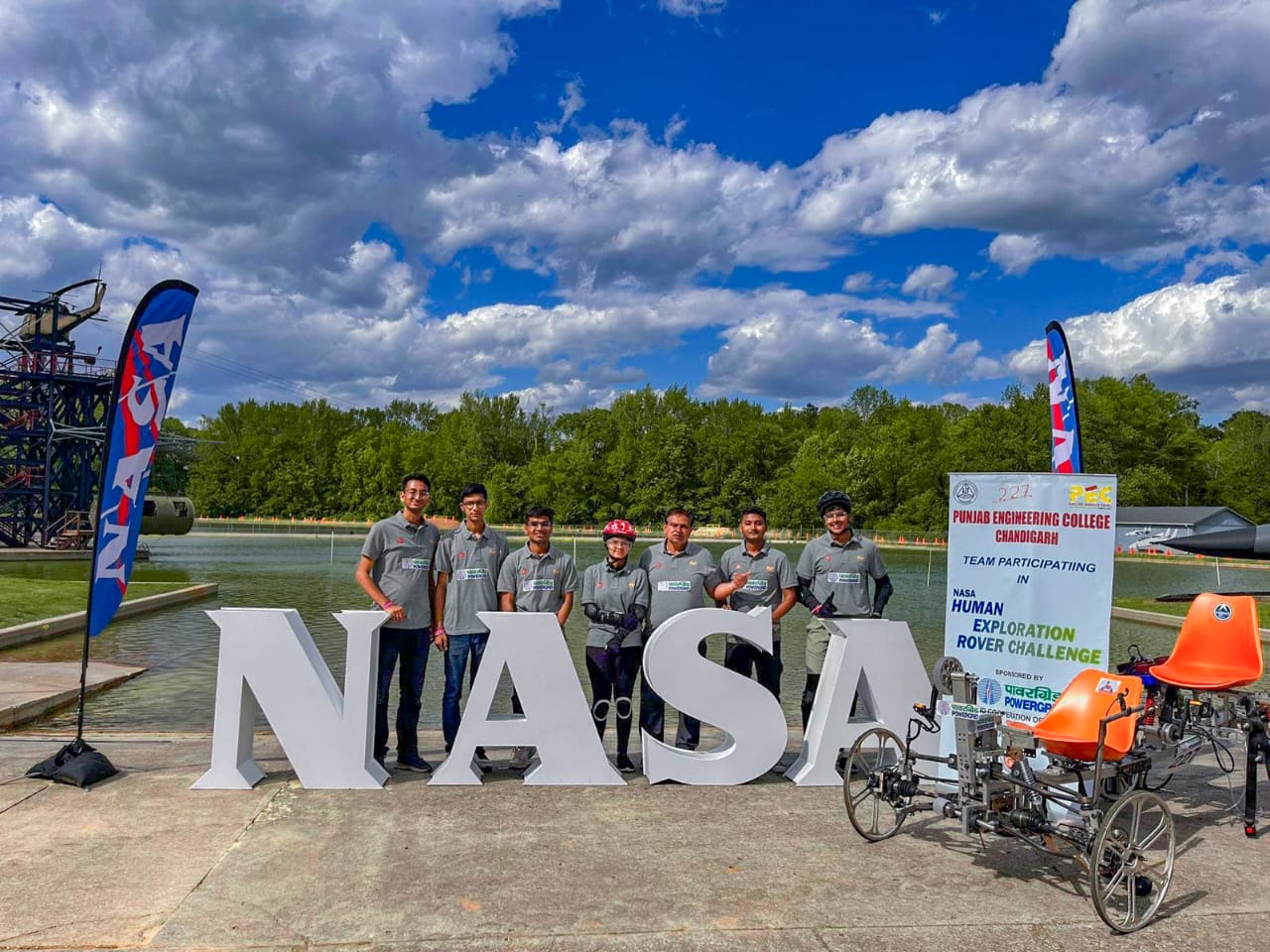In a first of its kind initiative, NASA has selected 30 global space enthusiasts from around the world as part of a Space Apps Collective for a pilot programme launched this year, with the theme “Building an Inclusive Global Space Community”.
One of these space enthusiasts is a young third year Punjab Engineering College (PEC) student from Chandigarh, Vanshul Goyal, who has been selected, apart from two others selected from India, to be a part of the Space Apps Collective. He is pursuing a degree in electronics and communication engineering. Last year, he had participated in a rover making competition, Human Exploration Rover Challenge, held by NASA at Huntsville in Alabama, US, where he led a team of 6 PEC students. His long term ambition is to work on reusable rockets or satellite communications.
Advertisement
“The idea of curating a space where we can work passionately for shared interests and the opportunity to make an impact on a community motivated me to join the Space Apps Challenge,” he says.
The Space Apps Collective is a community of 30 members who are guided by 5-10 community managers. The members discuss problems they see around them and encourage the exchange of lived experiences. “ Issues like lack of collaboration of young professional pass-outs with the industry, how to make education accessible to the underprivileged, why women only take traditional professions as careers, projects’ access to funding, technology is growing but are we utilizing the full potential – have been discussed,” says Vanshul.
The selected community members from around the world hold discussions and workshops to understand each other’s ideas in online mini genius workshops. “All of us from different parts of the world share our experience and then all of us together discuss the problem, the challenges faced in overcoming a problem, group the similar problems and find out possible solutions,” says the passionate Haryana boy.
“We get to have a global perspective about challenges and issues, which help us to solve problems in our local environment, even politics,” he says, talking about interacting with other similar-thinking individuals from different parts of the world.
One would think, why would NASA want to foray into politics and other generic issues. “NASA wants to gets its open and free data present on the Internet to be used so that the scientific knowledge can spread to every section of society. Also, it wants global collaboration in every field whether it is politics, technology, environment, not just in space,” explains the young lad. Delving further, Goyal says, “Countries, like China, are not sharing data with other governments. So, NASA wants to create global partnership to let the world take the maximum benefit of the technological revolution taking place”.
The NASA International Space Apps Challenge is a hackathon for coders, scientists, designers, storytellers, makers, technologists, and innovators around the world to come together. NASA wants these stakeholders to use open data displayed by NASA and its Space Agency Partners on the Internet to create solutions to challenges we face on Earth and in space.
By the end of the term in March 2024, a newsletter will be published which will give the outputs of the detailed discussions.











